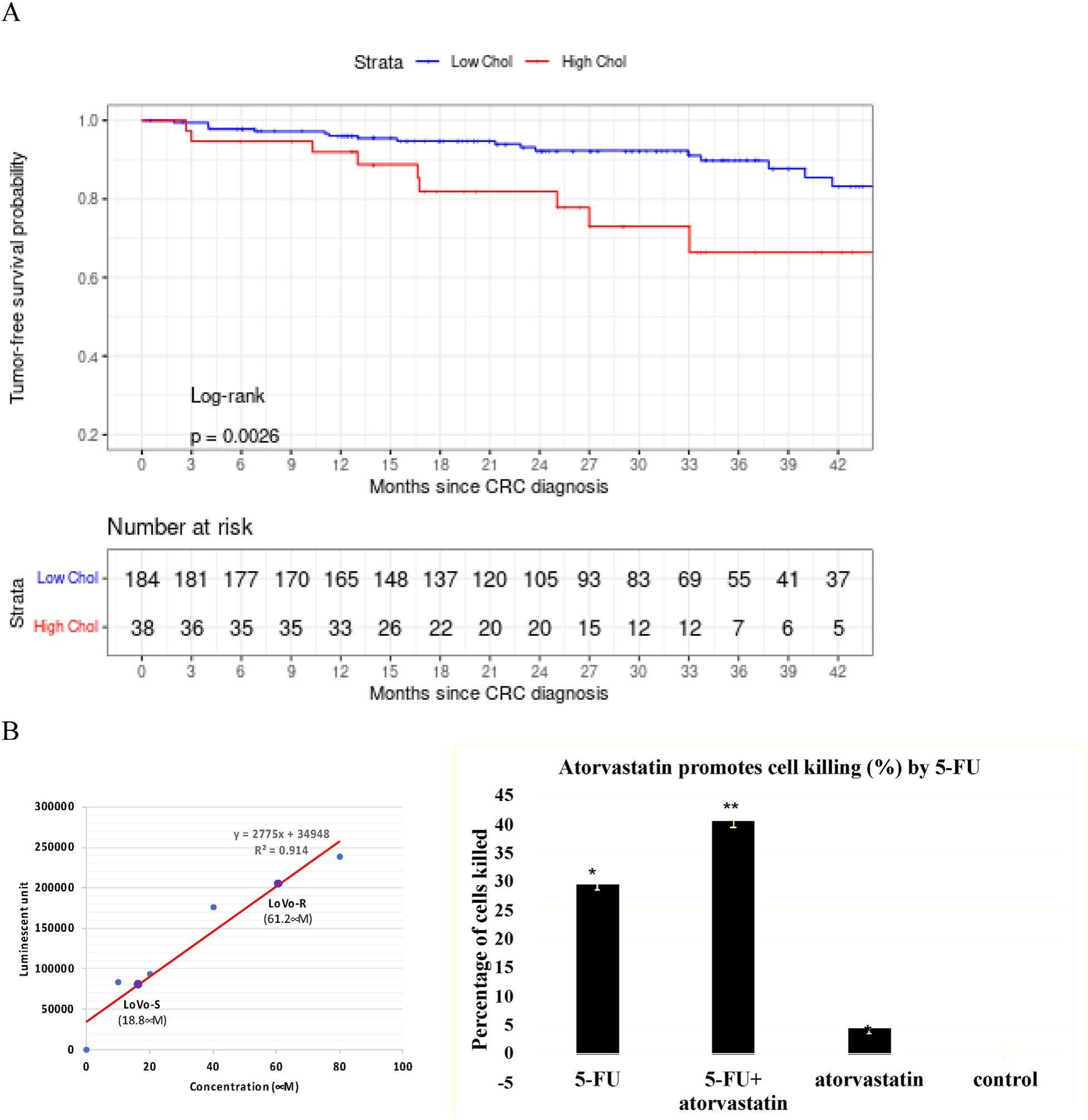
Aberrant cholesterol metabolism in colorectal cancer represents a targetable vulnerability


Colorectal cancer (CRC) is the second most deadly adult cancer in men and women combined, accountable 9.2% of all cancer deaths. Drug resistance to chemotherapies, such as 5-FU-related regimens, remains a major cause of cancer recurrence and death in patients with CRC. Aberrant metabolic changes in cancer cells are a significant cancer hallmark. We hypothesize that elevated cholesterol synthesis represents a targetable vulnerability in CRC.
